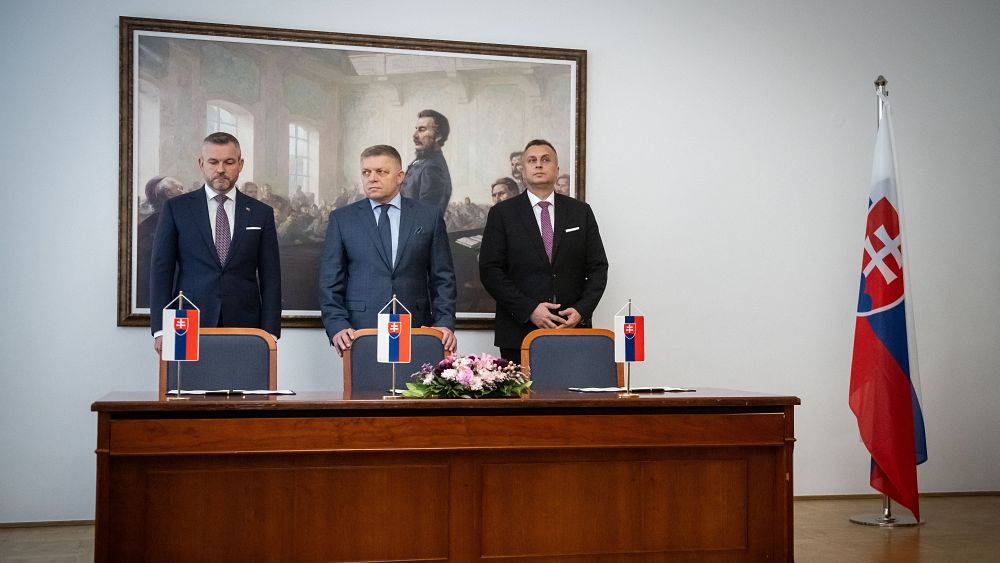
The Socialists and Democrats (S&D) group in the European Parliament announced on Thursday that it was preparing to suspend three Slovak members who belong to pro-Russia populist Robert Fico’s Smer-SD party, which came top in the country’s recent parliamentary elections.
As prime minister-designate, Fico has struck a coalition agreement to create a coalition government with anti-Ukrainian and Euro-sceptic overtones, bringing together Smer, the left-wing party Hlas-SD, and the far-right ultranationalist Slovak National Party.
Fico campaigned on ending his country’s support for Ukraine in its fight against the Russian invasion, and his victory is a blow to the EU’s effort to present a unified front in opposition to the Kremlin.
The inclusion of the Slovak National Party, meanwhile, brings into government a party with explictly anti-LGBT, anti-Roma and anti-Ukraine views. Some of its members are known to have links with the even more extreme People’s Party Our Slovakia, an electorally marginal party whose leader is known for his neo-Nazi views.
In response to the coalition agreement, the Presidency of the Party of European Socialists (PES) on Thursday suspended both Smer-SD, which was a full member of the PES, and Hlas-SD, which was an associate member.
The S&D group, which represents the PES in the European Parliament, said it “welcomed” and “supported” the decision.
“In line with its internal rules and procedures, and taking fully into account today’s decision by the PES, the S&D Bureau will propose that the Group suspend the membership of its three Slovak MEPs next week”, the group said in a statement.
“The memorandum of understanding signed by all three parties [in the Slovak coalition govermment] is not compatible with the progressive values and principles of the European family of Socialists and Social Democrats.
“The recent public comments and positions taken by SMER and HLAS party leaders regarding the Russian war against Ukraine, migration, the rule of law and the LGTBIQ community have raised serious concerns and have no place in the progressive family.”
The three Slovak MEPs concerned are Monika Benova, Robert Hajsel and Katarina Roth Nevedalova.
Other European countries have lately seen extreme parties gain power via coalitions or other agreements, alarming moderate counterparts elsewhere.
In Sweden, the hard-right Sweden Democrats have provided vital parliamentary support to the governing centre-right coalition after performing well at the latest election. And in Finland, the True Finns party remains in government despite a series of scandals in which top figures have been shown speaking at public events staged by out-and-out neo-Nazis.





